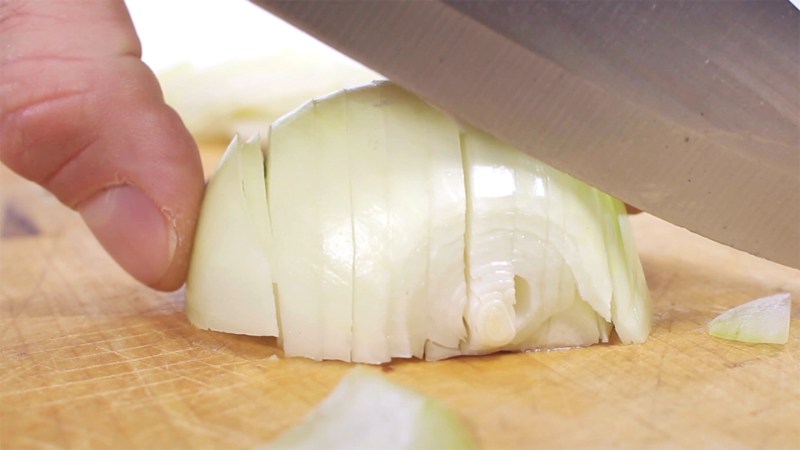Cutting onions often leads to tears, but researchers have found that using sharper knives can significantly reduce the discomfort. According to a study published in the October 21, 2023 issue of the Proceedings of the National Academy of Sciences, this simple technique can improve the culinary experience and offer insights into how certain pathogens spread.
The tears are caused by a chemical compound known as propanethial S-oxide. When an onion is cut, its cells rupture, releasing this compound into the air as tiny droplets. These droplets irritate the sensory nerves in the eyes, resulting in the familiar stinging sensation.
Navid Hooshanginejad, a physicist at SharkNinja in Needham, Massachusetts, explored this phenomenon while studying at Cornell University. One day, while preparing onions for a salad, he experienced the potent spray and began to ponder its potential to induce tears. The next day, he brought a ten-pound bag of onions into the lab to investigate further.
Using a high-speed camera, Hooshanginejad and his colleagues tested knives of varying sharpness. They created a miniature guillotine to better understand how the onion’s structure affects the release of the tear-inducing droplets. The researchers measured the speed and force of each cut, capturing the resulting mist and droplets in action.
Onions contain fluid-filled cells that create a pressurized environment. When cut, the pressure causes the juices to pool, ready to burst out once the skin is breached. Blunt knives require more force, resulting in more cells being crushed, which in turn produces a larger spray. In their experiments, they found that dull knives could propel onion liquid droplets nearly 40 meters high, almost half the height of a giant sequoia tree.
In contrast, using sharper knives allowed for quicker cuts, keeping the droplets from reaching eye level. Hooshanginejad explained, “It’s just like the idea of a water balloon. If you pop a water balloon with a needle, you don’t need much pressure. But if you use your finger, you are applying pressure that makes the water spray farther.”
This research not only addresses the common kitchen dilemma of crying while cutting onions but may also have broader implications. Jim Wilking, a physicist at Mayo Clinic in Rochester, Minnesota, who was not involved in the study, noted that the findings could help scientists understand how droplets disperse in various biological systems, potentially aiding in the study of pathogen spread.
The study opens up new avenues for both culinary enthusiasts and scientific research, highlighting the importance of knife sharpness in reducing discomfort in the kitchen while also revealing fundamental insights into fluid dynamics.








































































